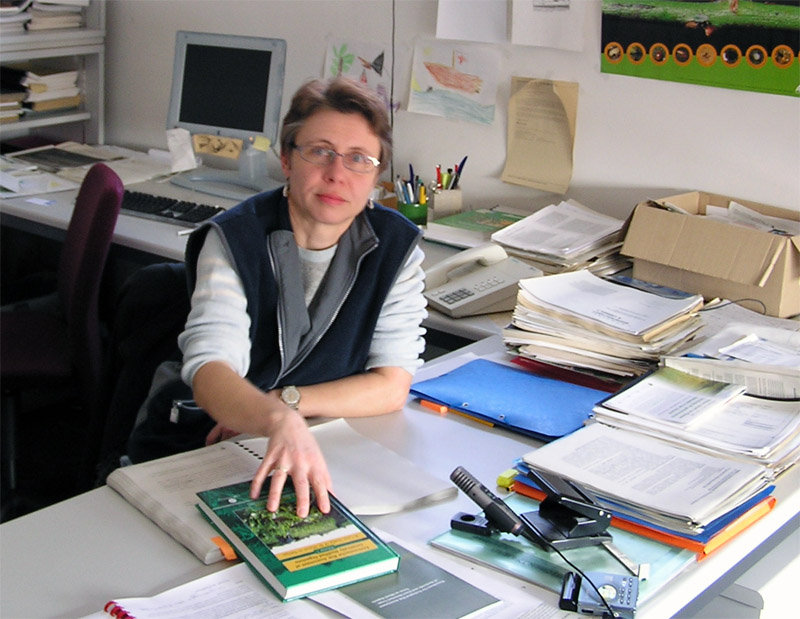International group of scientists, conservationists and leading environmental advocates have rejected potentially dangerous genetic engineering tool

As thousands of government representatives and conservationists convene in Oahu, Hawai’i this week for the 2016 World Conservation Congress, international conservation and environmental leaders are sounding the alarm about the use of gene drives – a controversial new synthetic biology technology intended to intentionally cause species to become extinct.
In a digital vote released August 26 by the International Union for the Conservation of Nature (IUCN), scientists and government representatives voted overwhelmingly for IUCN and its commissions to adopt a de facto moratorium on support or endorsement of research into gene drives for conservation or other purposes. News of the vote comes as an important open letter is published on the topic.
Scientists and environmental experts and organisations from around the globe have advocated for a halt to proposals for the use of gene drive technologies in conservation. Announced on Thursday, a long list of environmental leaders, including Dr. Jane Goodall, DBE, genetics professor and broadcaster Dr. David Suzuki, Dr. Fritjof Capra, entomologist Dr. Angelika Hilbeck, Indian environmental activist Dr. Vandana Shiva, environmental justice advocate Nnimmo Bassey and organic pioneer and biologist Nell Newman, have lent their support to an open letter, “A Call for Conservation with a Conscience: No Place for Gene Drives in Conservation.”
The letter states, in part: “Gene drives, which have not been tested for unintended consequences, nor fully evaluated for ethical and social impacts, should not be promoted as conservation tools.”
“Gene drives are basically a technology that aims for a targeted species to go extinct,” explains ecologist and entomologist Dr. Angelika Hilbeck, President of the European Network of Scientists for Social and Environmental Responsibility (ENSSER). “While this may appear to some conservationist professionals to be a ‘good’ thing and a ‘silver bullet’ to handle complicated problems, there are high risks of unintended consequences that could be worse than the problems they are trying to fix.”
Both the leading developers of the technology and also those concerned about gene drives will be attending this week’s congress and holding events to raise awareness, hype promises or highlight the potential hazards of gene drives. One near-term gene drive proposal, promoted by U.S.-based non-governmental organisation Island Conservation, intends to release gene drive mice on islands to eradicate them. Another led by the University of Hawai’i would develop gene drive mosquitoes for use in Hawaii to combat avian malaria which affects honeycreeper birds. The debate around gene drives is likely to resurface later this year at the negotiations of the United Nations Biodiversity Convention in Cancun, Mexico in December.
“Gene drives, also known as ‘mutagenic chain reactions,’ aims to alter DNA so an organism always passes down a desired trait, hoping to change over time the genetic makeup of an entire species,” explains Dr Vandana Shiva of Navdanya. “This technology would give biotech developers an unprecedented ability to directly intervene in evolution, to dramatically modify ecosystems, or even crash a targeted species to extinction.”
“To lose sight of the problem of biodiversity loss in favor of false solutions and short-term techno-fixes such as gene drives is a dangerous path,” said Erich Pica, President of Friends of the Earth. “There are real community-based conservation efforts that are truly sustainable and should be scaled up and supported. We are very concerned gene drives will drive forward destructive agricultural practices or be used for military purposes – speculative conservation claims are at best an unfounded diversion or smokescreen.”
Signatories of the letter, which include indigenous organisations and legal experts, raised legal and moral questions, citing an “ethical threshold that must not be crossed without great restraint.”
“From military testing to GMO crops, and now gene drives, Hawai’i should not be treated as a test zone for risky and experimental technologies,” said Walter Ritte, Native Hawaiian activist and hunter. “What happens in Hawai’i must be discussed with residents, not decided from a lab on the other side of the continent. Hawaiians should decide what is best for Hawai’i.”
Some of the signing organisations will be holding a Knowledge Café event as part of the IUCN World Conservation Congress at 8:30 am (HST) on Monday, September 5.
In response to upcoming proposals to release gene drive organisms in Hawaii, the local organisation Hawai’i SEED will be hosting an educational session on gene drives in the evening on Tuesday, September 6.
